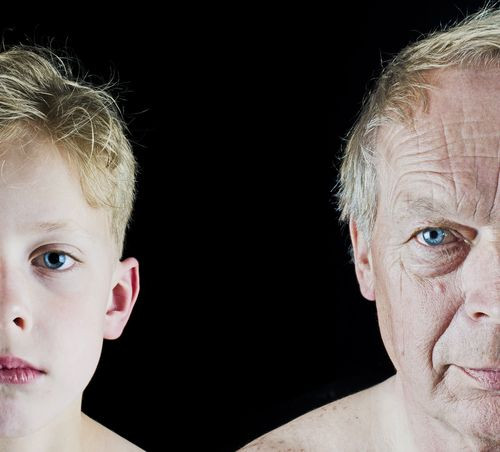Visual Perception Linked To IQ: Growing Old, We Lose Both Mental And Visual Processing Speed

Daily, scientists and their fancy MRI machines offer us more hard evidence of how our brains decline with age. A new study conducted by a team of Scottish researchers suggests our dwindling brain power may no longer require corroboration from high-powered technology or complex exams. Age-related declines in intelligence are strongly related to decreasing visual perception speeds, the research team found. "Since the declines are so strongly related, it might be easier under some circumstances to use inspection time to chart a participant's cognitive decline than it would be to sit them down and give them a full, complicated battery of IQ tests," said Dr. Stuart Ritchie, a research fellow at the University of Edinburgh.
Does Older Mean Dumber?
Albert Einstein famously said, "A person who has not made his great contribution to science before the age of 30 will never do so." More generally, America is a "youth culture" that values the young while giving less respect to those who no longer sparkle with high energy and childlike enthusiasm. Despite Grandma’s protests, maybe this is not such a terrible thing. After all, there is mounting evidence to show exactly how much brain function slows as people age.
However, speed is not everything and may even be a weakness. Earlier this year, a study simulated the brain processes of an older person trying to retrieve information. The reason the brains of older people work more slowly is they have more information and higher quality information stored in their brains. Plus, older people possess greater sensitivity to nuance than their younger counterparts, and that's another reason their brains may perform less nimbly. Meanwhile, recent research from the University of California, Berkeley finds older people to be better than younger peers at seeing the positive side of a stressful situation and empathizing with the less fortunate. Clearly, an older brain with its own unique treasures has compensations.
For the current study, a research team hypothesized that older brains lack efficiency in cognitive processing due to a loss in visual processing ability. To understand if intelligence and visual function might be related, the researchers measured intelligence and ‘inspection time’ for 628 healthy volunteers at three separate ages: 70, 73, and 76. The "inspection time" test measured how long it took participants to reliably tell one shape from another after seeing very brief flashes of these shapes on a screen. “The typical person who has better-preserved complex thinking skills in older age tends to be someone who can accumulate information quickly from a fleeting glance,” Ritchie said.
What did the researchers discover? As they aged, participants showed a significant decline in both intelligence and inspection time. "What surprised us was the strength of the relation between the declines," said Ritchie, who didn't expect the two declines to be so strongly connected. He adds these results suggest the brain's “ability to make correct decisions based on brief visual impressions limits the efficiency of more complex mental functions."
To "read a situation in a glance," then, appears to be lost as we age. In certain situations — driving a car, say — this may be a terrible loss, but in other circumstances the need to take more time to really see may be both preferable and more accurate in a world of increasing complexity.
Source: Ritchie SJ, Tucker-Drob EM, Dreary IJ. A strong link between speed of visual discrimination and cognitive ageing. Current Biology. 2014.



























